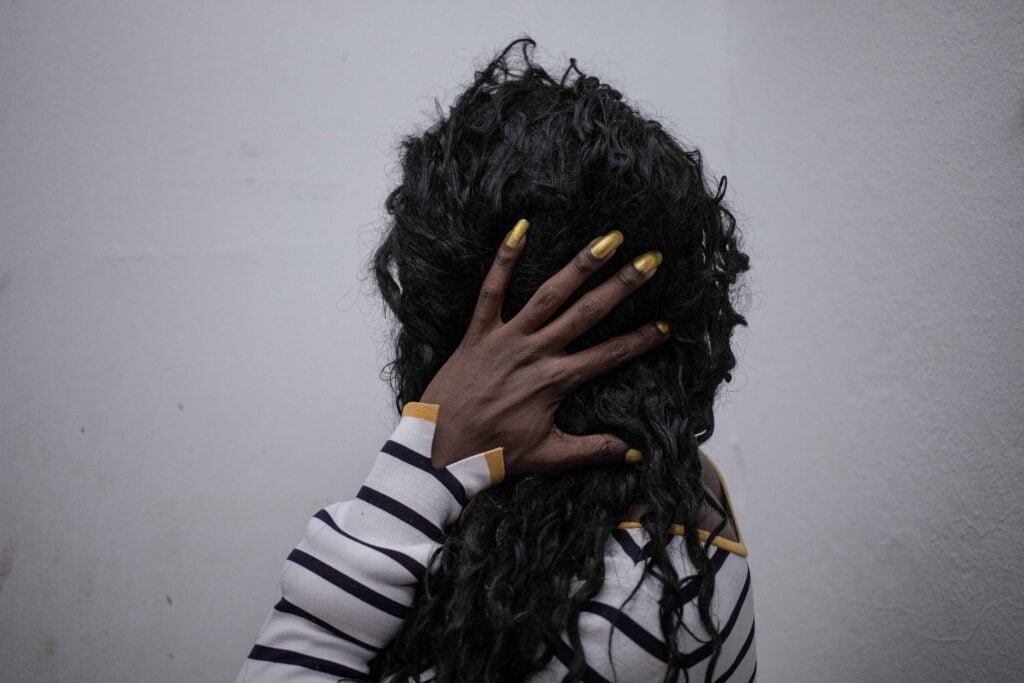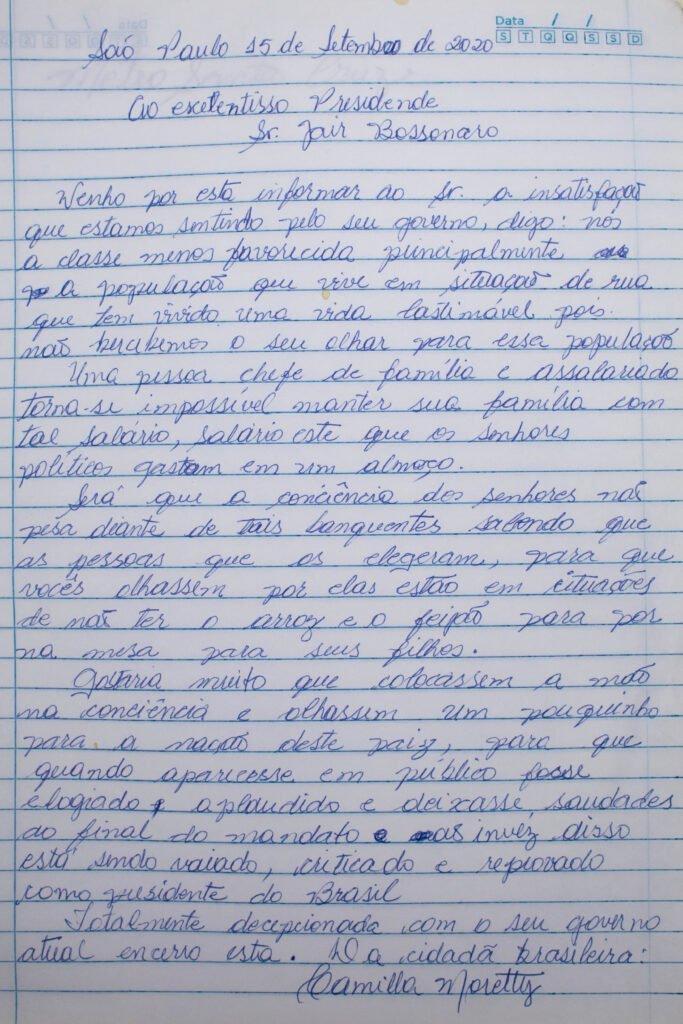
Paloma vive em uma casa de acolhimento em São Paulo, chamada Casa Florescer II, junto de outras 29 mulheres transexuais. Durante a pandemia estive documentando a vida de 15 mulheres residentes da casa para entender como a o momento atual vem impactando suas vidas e potencializando o estado de vulnerabilidade que muitas delas vivem.
No contexto atual a dificuldade para ingressar no mercado de trabalho formal foi potencializada, dificuldade que muitas delas já encontravam antes mesmo de viver uma pandemia. Para conseguir manter as necessidades básicas como higiene e vestimenta, muitas das mulheres presentes nesse trabalho encontram na prostituição a solução de renda.
O acesso à saúde pública, necessidade comum entre as meninas por motivos variados como tratamento de feminização, doenças sexuais e violência, também foi impactado no momento atual, e se mantém sem o posicionamento adequado de muitos profissionais em relação às pessoas transgênero.
O distanciamento e o isolamento social estipulado como meio de segurança ao Covid19 também são fatores que implicam riscos na vida das meninas, já que muitas precisam ir para as ruas trabalhar, e a casa onde vivem não possui estrutura adequada para esse fim, atualmente as meninas dividem poucos banheiros e um único dormitório.
As imagens desse projeto apresentam os rostos e corpos que carregam essas histórias, e registros desses cotidianos que ilustram suas realidades. Paloma é o nome de uma dessas 15 mulheres que contaram suas histórias sobre violência, prostituição, desamparo, cárcere, sonhos e coragem.














